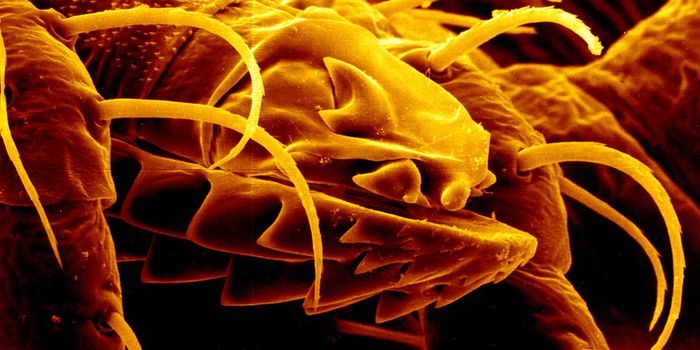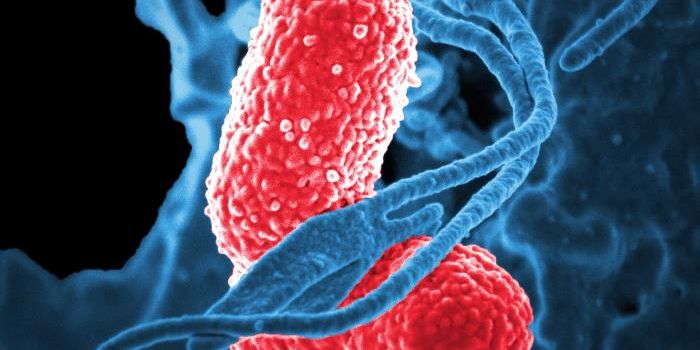Ebola uses T-cells against us
New research shows that Ebola virus targets the host’s immune system to produce more severe disease. Specifically, the virus signals T-cells to induce a cytokine storm, a hallmark of the infection.
Image: Centers for Disease Control and Prevention
Previous work suggested that Tim-1, a T-cell receptor-independent T-cell activator, interacts with the Ebola virion. Thus, study author Alexander Bukreyev and colleagues at the University of Texas, Galveston, investigated the role of Tim-1 in the cytokine storm.
According to Bukreyev, “in this study, we demonstrated the central role of a T-cell protein called Tim-1 in the development of Ebola virus disease. Mice that were genetically engineered without Tim-1 became less ill when infected with Ebola virus and only one died, whereas all of the unmodified mice succumbed.” Specifically, all of the wild type mice died from Ebola infection, but 80% of the Tim-1-knockout mice survived and recovered completely!
They also investigated the connection between Tim-1 and the production of proinflammatory cytokines. Many cytokines, including IL-2, TNF-alpha, and IFN-gamma, were reduced in the Tim-1-knockout mice, suggesting that the production of a cytokine storm depended on Tim-1. Surprisingly, the wild type and knockout mice had nearly equal viral titers, indicating that the knockout mice did not survive because they carried less virus - they probably survived because no cytokine storm was produced.
The group also showed that Ebola virus binds directly to T-cells - a curious finding considering that the virus does not replicate within these cells. With flow cytometry, they found that both primary CD4 T-cells and Jurkat cells (a human T-cell line) stained positive for the Ebola virus glycoprotein after infection, indicating a direct interaction between the T-cells and the virus.
By binding directly to T-cells, Ebola virus activates these cells and induces them to produce cytokines. To verify that Tim-1 was involved in this process, they knocked down the expression of Tim-1 in primary CD4 T-cells with an siRNA. Indeed, the siRNA reduced the number of T-cells activated by the virus.
According to Bukreyev, "understanding how the invading Ebola virus impacts the host's immune system is a very important step in developing targeted therapies for Ebola virus disease. The findings of this study indicate that drugs that block Tim-1 could be a potential new treatment for people with Ebola."
Sources: mBio and EurekAlert


















































